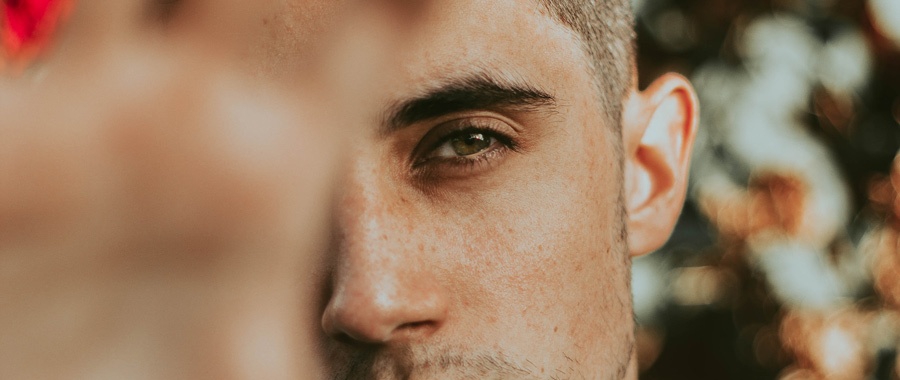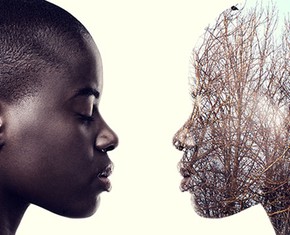The views expressed in our content reflect individual perspectives and do not represent the authoritative views of the Baha'i Faith.
As human beings we are all imperfect, a complex mix of light and dark — so part of our task in life, according to most religions, involves tending to our own faults and overlooking the faults of others.
That’s what Christ meant when he cautioned people not to see the speck in another person’s eye when they themselves have a plank in their own:
Thou hypocrite, first cast out the beam out of thine own eye; and then shalt thou see clearly to cast out the mote out of thy brother’s eye. – Mathew 7:5.
Within the Baha’i teachings, Baha’u’llah similarly counsels us: “… magnify not the faults of others that thine own faults may not appear great.” (The Hidden Words). Abdu’l-Baha put it this way:
It is my hope that you may consider this matter, that you may search out your own imperfections and not think of the imperfections of anybody else. Strive with all your power to be free from imperfections. Heedless souls are always seeking faults in others. What can the hypocrite know of others’ faults when he is blind to his own? … As long as a man does not find his own faults, he can never become perfect. Nothing is more fruitful for man than the knowledge of his own shortcomings. – The Promulgation of Universal Peace
This sounds simple enough, but it’s not an easy task. What we perceive as faults in others often stand out prominently in our minds, and trying to ignore them can be cumbersome. It may not even be outright negative traits that bother us — just the individual peculiarities of others can annoy us to the core.
Many of the things we perceive to be wrong in others just seem out of sync with our own perception of the world, which has been shaped by our culture and experience. This means, perhaps, that we need to overlook two types of negativity: things that we personally don’t like, and the kind of actions or behaviors that most people generally regard as despicable. We need to find ways to overlook both types if we want to truly love others. This is no easy thing to do, especially in regard to the latter type of “evil.”
One way to succeed in this often-challenging task is not to simply try to overlook the bad but to also try to focus on the good. Abdu’l-Baha said:
If a man has ten good qualities and one bad one, to look at the ten and forget the one; and if a man has ten bad qualities and one good one, to look at the one and forget the ten. – cited by J.E. Esslemont in Baha’u’llah and the New Era
To do this we have to have sin-covering eyes — and we also have to use positive thoughts to overcome negative thoughts:
When a thought of war comes, oppose it by a stronger thought of peace. A thought of hatred must be destroyed by a more powerful thought of love. – Abdu’l-Baha, Paris Talks
This seems very similar to the notion of positive thinking, which permeates much of popular spirituality and self-help methods. To become happy individuals, we have to fill our attention with positive perceptions and uplifting energy. However, it appears that the Baha’i conception of overlooking people’s faults is not just an exercise in mind control and attention; it is tied to the very nature of reality.
One unique feature of the Baha’i view of spiritual reality regards the notion of evil. The Baha’i teachings point out that evil does not exist in itself; it is just the absence of good:
Briefly, intelligible realities such as the praiseworthy attributes and perfections of man are purely good and have a positive existence. Evil is simply their non-existence. So ignorance is the want of knowledge, error is the want of guidance … All these are nothing in themselves and have no positive existence. …
It is thus evident that all evil is mere non-existence. Good has a positive existence; evil is merely its absence. – Abdu’l-Baha, Some Answered Questions
This does not mean that the things we normally regard as evil do not have a negative impact on us. They do. What it means is that evil is not some objective entity out there in the world. It is not an active force that is out to get us. Rather, evil refers to the negativity and the lack of spirituality centered in the ego. The selfish and cruel desires of the lower self represent the evil we all have to overcome.
On the other hand, Baha’u’llah explained that everything in creation emanates from one or more of the qualities of God. This means that in the world around us and within us, what is most real is that which is a reflection of God. Evil is a mere shadow; God’s attributes are most real. So, when we overlook other people’s faults and focus on their positive qualities, we in fact see God’s light in them and view their true reality.
This truly profound conception means that avoiding fault finding is not just some kind of chore we have to do begrudgingly — instead it creates a deeply spiritual act of perceiving the divine light in other people and indeed in the world around us. When we make this kind of positive vision a regular habit, we become intoxicated with the beauty of God because that is all we perceive.
This also suggests that while we learn from our own mistakes, we can also see God’s light within ourselves:
O Son of Being! Thou art My lamp and My light is in thee. Get thou from it thy radiance and seek none other than Me. For I have created thee rich and have bountifully shed My favor upon thee. – Baha’u’llah, The Hidden Words
By developing, enacting and perceiving the good within ourselves we kindle the divine light within, drawing closer to our Maker. The Baha’i teachings tell us that we are all created noble but differ in our spiritual progression — yet no one has the right to judge another. We are all fellow seekers on the same path towards truth. God’s light ever shines on us. Our task: to remove everything that gets in the way of that light, so we no longer stand in the shadows. To focus on the good in others means allowing that divine light to let us see what is most real.
















Comments
Sign in or create an account
Continue with Googleor